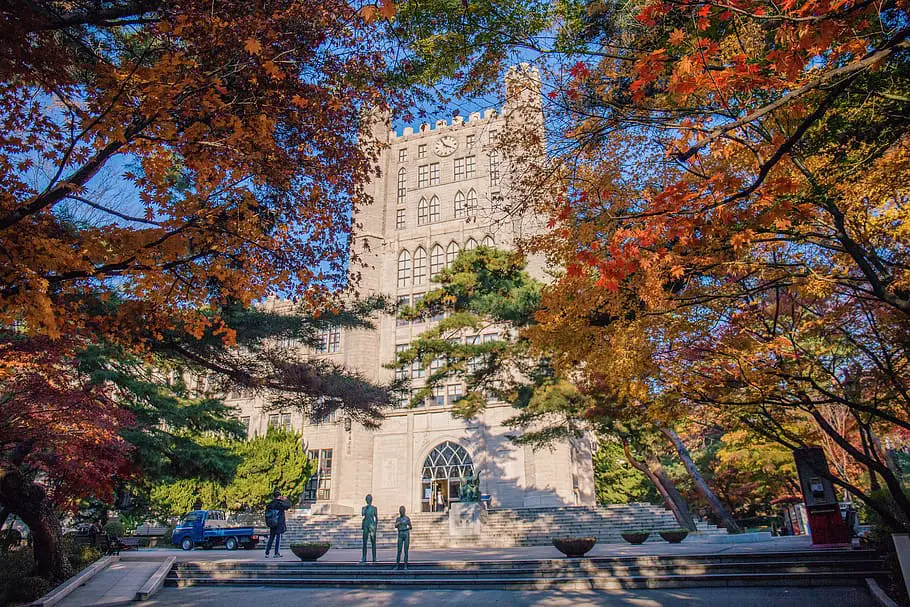15 Fully Sponsored Pilot Training Programs
In this guide, we are going to provide you with a comprehensive list of fully sponsored pilot training programs. All you have to do is go through each of them and apply for the training. Before providing you with this list, kindly permit me to briefly explain what the fully sponsored pilot training program entails.
What Is Fully Sponsored Pilot Training Program?
Fully sponsored pilot training refers to a training program where the entire cost of pilot training, including tuition fees, flight hours, accommodation, and sometimes even living expenses, is covered by a sponsoring organization or company. These programs are typically offered by airlines, military organizations, or aviation academies.
Fully sponsored pilot training programs are designed to attract and train aspiring pilots who may not have the financial means to pursue flight training independently. By offering sponsorship, organizations aim to invest in the development of new pilots and ensure a steady supply of qualified aviators for their operations.
These programs usually have specific eligibility criteria and a competitive selection process. Candidates may be required to meet certain age and educational requirements, undergo medical examinations, pass aptitude tests, and undergo interviews. Successful applicants are then provided with comprehensive flight training, including ground school instruction, simulator training, and actual flight hours.
Upon successful completion of the training program, sponsored pilots often enter into a contractual agreement to work for the sponsoring organization for a specified period. This agreement may include terms such as serving as a first officer or a pilot-in-command on certain aircraft types, fulfilling a minimum number of flying hours, or meeting performance targets.
Fully sponsored pilot training programs can provide aspiring pilots with an opportunity to pursue their dreams of becoming professional aviators, even if they lack the financial means to do so. These programs offer a structured and comprehensive training curriculum and help to reduce the financial burden associated with pilot training.
What are the Benefits of Fully Sponsored Pilot Training Program?
A fully sponsored pilot training program offers several benefits to aspiring pilots. Here are some of the key advantages:
- Financial Support: One of the primary benefits is that the training program is fully funded by the sponsoring organization or institution. This means that aspiring pilots do not have to bear the substantial financial burden of flight training, which can be quite expensive. It allows individuals who may not have the means to afford pilot training to pursue their dream of becoming a pilot.
- Comprehensive Training: Fully sponsored pilot training programs generally offer comprehensive training that covers all the necessary aspects of becoming a pilot. This includes theoretical knowledge, practical flight training, simulator sessions, and other essential training components. Participants receive a structured and rigorous training curriculum, ensuring they gain the required skills and knowledge to operate an aircraft safely and effectively.
- Quality Education: Sponsoring organizations typically partner with reputable flight training schools or academies to deliver high-quality education. These institutions often have experienced instructors, state-of-the-art facilities, and a strong focus on safety standards. As a result, participants receive top-notch training that meets industry standards and regulations.
- Faster Career Progression: Some fully sponsored pilot training programs have partnerships with airlines or aviation companies. This can provide aspiring pilots with enhanced career opportunities and a smoother transition to an airline job upon completing their training. Such programs may include guaranteed job placements, internships, or a pathway to employment, reducing the challenges associated with finding a job in the aviation industry.
- Networking and Mentoring: Being part of a fully sponsored pilot training program allows individuals to build valuable connections within the aviation industry. Participants may have opportunities to interact with experienced pilots, industry professionals, and representatives from airlines or aviation companies. This networking can be beneficial for career growth, mentorship, and gaining insights into the aviation industry.
- Reduced Financial Risk: Flight training is a significant financial investment, and pursuing it independently can carry a substantial risk if a candidate is unable to secure a job after completion. By participating in a fully sponsored program, individuals can mitigate this risk as they often have a job waiting for them upon successful completion of the training.
Read also: 8 Best Airlines To Be a Flight Attendant
Full List Of Fully Sponsored Pilot Training Programs
Here’s a list of the fully sponsored pilot training programs:
The Organization Of Black Aerospace Professionals Scholarship
The Organization of Black Aerospace Professionals (OBAP) is a nonprofit organization dedicated to supporting and promoting aviation and aerospace professionals, particularly those from underrepresented communities, including African Americans. OBAP offers various scholarships to help individuals pursue careers in aviation and aerospace. While I don’t have access to the most up-to-date information, as my knowledge cutoff is September 2021, I can provide you with general information about OBAP scholarships based on historical information.
OBAP offers several scholarship programs, including the following:
- OBAP Aviation Career Education (ACE) Academy Scholarships: These scholarships are designed to support students who have participated in OBAP’s ACE Academy program. ACE Academy is an educational initiative that introduces youth to aviation and aerospace careers through hands-on experiences and mentorship. Scholarships are awarded based on academic achievement, leadership potential, and participation in the ACE Academy program.
- OBAP Aviation Scholarships: These scholarships are available to undergraduate and graduate students pursuing degrees in aviation-related fields such as aerospace engineering, aviation management, or professional pilot programs. The selection criteria typically include academic performance, leadership qualities, community involvement, and a demonstrated commitment to pursuing a career in aviation.
- OBAP Airbus Leadership Grant: This grant is awarded to students who are enrolled in an aviation-related degree program at an accredited college or university. The grant supports their academic pursuits and helps alleviate some of the financial burdens associated with education.
- OBAP M.R. Chambers Scholarship: Named in honor of OBAP’s founder, the M.R. Chambers Scholarship is awarded to undergraduate and graduate students pursuing aviation-related degrees. The scholarship considers academic achievement, community involvement, leadership qualities, and financial need.
Leroy W. Homer Jr. fully sponsored pilot training scholarships
Leroy W. Homer Jr. was a First Officer and co-pilot of United Airlines Flight 93, which tragically crashed in Pennsylvania during the September 11, 2001 terrorist attacks. In memory of his passion for aviation, several organizations have established scholarships in his honor to support aspiring pilots in their training. This scholarship training program is open to all US citizens and it’s worth $9000. Click here to start your application.
99s Pilot Training Scholarship Program
The Ninety-Nines do offer various scholarships and grants for women interested in pursuing pilot training or furthering their aviation education. These scholarships can provide financial assistance for flight training, advanced ratings, aviation degree programs, and more. The eligibility criteria and application processes vary depending on the specific scholarship.
To get the most up-to-date information on any fully sponsored pilot training programs, I recommend visiting the official website of The Ninety-Nines (www.ninety-nines.org) or contacting them directly for information on their current scholarship offerings. Click here to access any available scholarship program.
Women In Aviation Fully Sponsored Pilot Training Program
The Women in Aviation International (WAI) organization is a well-known entity that promotes the advancement of women in the aviation industry. They offer various scholarships and opportunities for women interested in pursuing careers in aviation. These scholarships can cover a wide range of aviation-related training, such as flight training, engineering, maintenance, air traffic control, and more.
To obtain the most up-to-date information about aviation scholarship training programs offered by WAI or other organizations, I recommend visiting the official WAI website (https://www.wai.org/) or reaching out to them directly for more information. They will be able to provide you with accurate and current details regarding any specific training programs or scholarships they offer.
Aircraft Owners and Pilot Association Scholarship
The Aircraft Owners and Pilots Association (AOPA) offers several scholarships to support aspiring pilots in their aviation education. While I don’t have access to the most up-to-date information on AOPA scholarships since my training data only goes up until September 2021, I can provide you with some general information about their scholarship program.
The AOPA Foundation, the philanthropic arm of AOPA, typically administers these scholarships. They aim to encourage and assist individuals who are passionate about aviation and seeking careers in the field. The scholarships cover a variety of aviation-related expenses, such as flight training, aviation maintenance, and educational expenses.
The specific eligibility criteria, application process, and deadlines for AOPA scholarships may vary from year to year. However, typically applicants must meet certain requirements, such as being a U.S. citizen or permanent resident, being a current AOPA member, and demonstrating a strong commitment to aviation.
To find the most up-to-date information about AOPA scholarships, including application requirements and deadlines, I recommend visiting the AOPA website (www.aopa.org) and looking for their scholarship program section. There you will find detailed information about the available scholarships and how to apply.
Additionally, it’s worth noting that there may be other aviation-related scholarships offered by different organizations, both nationally and locally. Exploring other avenues for aviation scholarships could provide additional opportunities for financial support in pursuing a career in aviation.
Airline Pilots Scholarship Program
Airline pilot scholarship programs are initiatives designed to support individuals interested in pursuing a career as an airline pilot. These programs typically provide financial assistance to aspiring pilots to help cover the costs associated with flight training and education. Scholarships may be offered by airlines, aviation organizations, educational institutions, or government entities.
Key Points to Consider Regarding Airline Pilot Scholarship Programs
Here are some key points to consider regarding airline pilot scholarship programs:
- Eligibility: Scholarship eligibility criteria vary depending on the program. Typically, applicants need to meet certain requirements, such as age restrictions, educational qualifications, and sometimes specific medical and fitness standards.
- Application Process: Each scholarship program has its own application process and deadlines. Applicants may be required to submit an application form, academic transcripts, letters of recommendation, essays, and potentially undergo interviews or assessments.
- Scholarship Coverage: The coverage provided by airline pilot scholarships can vary widely. Some scholarships may cover the full cost of flight training, including tuition fees, flight hours, and other associated expenses. Others may provide partial funding or specific components like ground school or simulator training.
- Obligations and Commitments: Some scholarship programs may require recipients to fulfill certain obligations or commitments in return for the financial support received. This could include working for the sponsoring airline or organization for a specific period or meeting other agreed-upon conditions.
- Continued Performance Evaluation: In many cases, scholarship recipients are expected to maintain a certain level of academic performance and demonstrate progress throughout their training. Failure to meet the specified requirements may result in the termination of the scholarship.
- Finding Scholarship Opportunities: To discover airline pilot scholarship programs, consider researching aviation organizations, industry associations, airline companies, and educational institutions. Online resources, aviation magazines, and pilot forums can also provide valuable information on available scholarships.
- Additional Funding Sources: Apart from airline pilot scholarships, aspiring pilots can explore other financial aid options, such as student loans, grants, and crowdfunding platforms. Some flight schools may offer financing options or in-house scholarships as well.
When applying for airline pilot scholarships, it’s important to carefully review the eligibility criteria, application requirements, and any obligations tied to the funding. Additionally, always be proactive in seeking out various scholarship opportunities and maintaining a strong academic and aviation record.
How To Apply For The Fully Sponsored Pilot Training Program
To apply for a fully sponsored pilot training program, you typically need to follow these steps:
- Research and identify potential sponsors: Look for airlines, aviation companies, military organizations, or government agencies that offer fully sponsored pilot training programs. Visit their websites or contact their recruitment departments to gather information about their programs, eligibility requirements, and application procedures.
- Check the eligibility requirements: Each sponsored training program may have specific eligibility criteria that applicants must meet. These criteria often include age limits, educational qualifications, physical fitness standards, and citizenship requirements. Make sure you fulfill all the necessary prerequisites before proceeding.
- Prepare your documents: Gather the required documentation for your application. This may include:
- Resume/CV: Prepare a professional resume highlighting your relevant skills, education, work experience, and any aviation-related activities or certifications.
- Academic records: Collect copies of your academic transcripts, diplomas, and certificates.
- Identification and citizenship proof: Gather documents such as your passport, birth certificate, or any other identification and citizenship proof as required.
- Medical certificate: Obtain a valid aviation medical certificate from an authorized aviation medical examiner to ensure you meet the medical fitness requirements.
- English proficiency: If English is not your first language, you may need to provide proof of English language proficiency by submitting test scores from exams like IELTS or TOEFL.
- Prepare a compelling application letter: Write a well-crafted application letter expressing your interest in the pilot training program. Highlight your passion for aviation, relevant experiences, and explain why you are a suitable candidate for the program. Tailor your letter to showcase how you align with the values and goals of the sponsoring organization.
- Submit your application: Follow the application instructions provided by the sponsoring organization. This may involve filling out an online application form, submitting your documents electronically, or mailing them to the designated address. Ensure that you meet all the deadlines and submit your application before the specified cutoff date.
- Prepare for selection tests and interviews: Fully sponsored pilot training programs often have a rigorous selection process, which may include written exams, aptitude tests, interviews, and medical evaluations. If your application is shortlisted, be prepared to demonstrate your knowledge, skills, and suitability for the program. Study relevant aviation materials, practice aptitude tests, and be ready to showcase your communication and problem-solving abilities.
- Attend the selection interviews and assessments: If you are invited for interviews or assessments, make sure to arrive well-prepared. Dress professionally, research the sponsoring organization thoroughly, and be confident in presenting yourself and your capabilities.
- Await the final decision: After the selection process, the sponsoring organization will inform you of their decision. If you are successful, you will receive an offer letter outlining the terms and conditions of the fully sponsored pilot training program. Review the offer carefully and seek any necessary clarifications before accepting it.
- Fulfill any additional requirements: Once accepted into the program, you may need to complete additional tasks or fulfill certain prerequisites before commencing the training. These requirements could include security clearances, background checks, or additional medical evaluations.
Remember, the process and requirements may vary depending on the sponsoring organization and the specific pilot training program. It’s crucial to thoroughly research and follow the instructions provided by the organization to maximize your chances of success.
FAQs
What are fully sponsored pilot training programs, and how do they work?
Fully sponsored pilot training programs are initiatives offered by airlines, aviation organizations, or government agencies to train aspiring pilots without requiring them to pay for their education. These programs typically cover the full cost of training, including flight hours, ground school, and certification. In return, candidates are often required to work for the sponsoring organization for a specific period after completing their training. This ensures the sponsor recovers its investment while the candidate gains valuable flying experience.
What are the eligibility criteria for joining these programs?
Eligibility criteria vary by program but generally include the following:
- Age: Most programs require candidates to be at least 18 years old.
- Education: A high school diploma with strong grades in mathematics, physics, and English is commonly required. Some programs may prefer a college degree.
- Medical Fitness: Candidates must pass a Class 1 medical examination to ensure they are physically fit to fly.
- Language Proficiency: English language proficiency is mandatory, as it is the international language of aviation.
- Citizenship/Residency: Some programs are open only to citizens or residents of specific countries.
Additional requirements may include passing aptitude tests, interviews, and simulator assessments.
How can I apply for fully sponsored pilot training programs?
To apply for a fully sponsored pilot training program:
- Research Programs: Identify programs offered by airlines (e.g., Emirates, Qatar Airways, or British Airways), aviation academies, or government schemes.
- Review Requirements: Ensure you meet the eligibility criteria for the program.
- Prepare Documents: Gather required documents, such as your resume, academic certificates, proof of citizenship, and medical reports.
- Submit an Application: Complete the online application form on the program’s official website. Be mindful of deadlines and ensure all information is accurate.
- Prepare for Assessments: Be ready to take aptitude tests, interviews, and simulator evaluations.
Conclusion
Hope you enjoyed reading this article and going through the list of fully sponsored pilot training program. You can visit the scholarship sites through the links provided in this guide and start your application as soon as possible. Ensure you bookmark this page for future reference as more training programs will be added.






